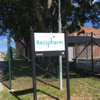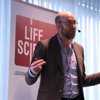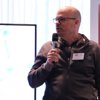Fritextsökning
Artiklar per år
Innehållstyper
-

List: The coolest names in biotech
Hairy beasts, volcanic material and space strolling stand out on a US list of the best biotech company names, and on a list of the coolest names for pharmaceuticals, a Swedish, or at least Swedish-British, drug came out on top.
-

Nocebo – the evil twin that makes you feel worse
The placebo effect is well known in healthcare, but not so its opposite: nocebo. “The effect is small, but it can have major repercussions,” says Uppsala researcher Charlotte Blease, co-author of a book on the phenomenon.
-

Nocebo – den onda tvillingen som får dig att må sämre
Placeboeffekten är väl känd inom vården – men det gäller inte dess motsats: nocebo. "Det är en liten effekt, men den kan få stora återverkningar", säger Uppsalaforskaren Charlotte Blease, medförfattare till en bok om fenomenet.
-

The Covid pandemic accelerated the development of cancer vaccine
The Covid pandemic gave a major boost to the vaccine field. The Danish biotech company Expres2ion Biotechnologies, which is developing a vaccine against breast cancer, testifies to this.
-

Study: Popular diabetes treatment is not associated with thyroid cancer
Concerns raised about an association between GLP-1 analogues, used to treat diabetes and obesity, and an increased risk of thyroid cancer are not supported by an extensive Scandinavian study.
-

Assignment: Facilitate the retention of foreign researchers
A newly appointed public inquiry is to develop measures to make attracting and retaining foreign doctoral students and researchers in Sweden easier.
-

Beta-blockers are often given unnecessarily, a study finds – “This will affect future practice”
Patients who have suffered a minor heart attack do not benefit from beta-blockers, according to a major new study that may change guidelines for cardiac care.
-

Recipharm divests five Swedish plants
Swedish contract manufacturer Recipharm is selling its facilities in Solna, Strängnäs, Höganäs, Karlskoga and Uppsala OTC Development to US private equity company Blue Wolf Capital Partners.
-

Settlement of cancer allegations against blockbuster drug
French pharmaceutical company Sanofi has reached a principal agreement in the US on around 4,000 of the cases in which its now withdrawn blockbuster heartburn drug Zantac allegedly had caused cancer.
-

Chans för företag i sjukvårdsektorn att delta i återuppbyggnaden av Ukraina
Mässan Rebuild Ukraine erbjuder en möjlighet för svenska företag i sjukvårdssektorn att delta i återuppbyggnaden av Ukraina. Life Science Swedens chefredaktör Samuel Lagercrantz meddelar att Life Science Sweden och systertidningen Medtech Magazine, tillsammans med Ny Teknik och hållbarhetsbyrån Forever Sustainable, nu bjuder in svenska företag att delta i en svensk paviljong på mässan.
-

”En väldigt uttalad AI-ångest i samhället idag”
AI kommer mer eller mindre bli en självklarhet på framtidens vårdavdelningar. Det menar Max Gordon, läkaren och AI-experten som forskar på nya applikationer vid Danderyds sjukhus.
-

Radioactive tracer to measure effect of drug towards Crohn’s disease
A radioactive tracer developed by Astra Zeneca and the Karolinska Institutet may play a major role for patients with Crohn's disease. That is the belief of Maria Belvisi at AstraZeneca.
-

Jan Holmgren to receive award for the development of cholera vaccine
Researcher Jan Holmgren is being awarded for the development of the first effective drinkable cholera vaccine. The award is given by the International Vaccine Institute (IVI) and vaccine company SK bioscience.
-

The life science strategy – what the industry wants
The process of updating the national life science strategy has begun at the government’s life science office. According to industry stakeholders, Sweden’s competitiveness, the accessibility of health data and the integration of innovation in healthcare are some of the points that are essential to review.
-

Han utvecklar AI-modeller för cancerdiagnostik
Det finns ett stort behov för tids- och kostnadseffektiv precisionsdiagnostik vid cancer. Det menar forskaren Mattias Rantalainen som arbetar med att ta fram lösningar baserad på artificiell intelligens.
-

”We need compatibility“
Penilla Gunther, founder of Fokus Patient and chair of the European Patient Safety Foundation, hopes that the forthcoming life science strategy will focus on efficient and secure management of patient data and equal access to medicines.
-

Möte om framtidens diagnostik igång i Stockholm
Labb och diagnostik står på agendan vid ett möte i Life City på onsdagen i Hagastaden.
-

Behandling av prostatacancer får positivt EU-utlåtande
Prostataläkemedlet Xtandi har nu fått ett positivt utlåtande i EU av den europeiska läkemedelsmyndigheten EMA:s rådgivande grupp CHMP.
-

Braincool polisanmäler förra vd:n – ska ha beviljat miljonlån till sig själv
Medicinteknikbolaget Braincool avskedar och polisanmäler sin kommersielle chef och tidigare vd, som anklagas för att ha lånat ut flera miljoner av bolagets pengar – till sig själv.
-

Han är ny ordförande för Stockholm Science City
Johan Christensen har utsetts till ny styrelseordförande för Stockholm Science City. Han efterträder Cecilia Schelin Seidegård som lämnar posten efter fem år.
-

Anna Törner: ”Orphan Designation – the "petite robe noire" of drug development”
It is easy to cling to various regulatory incentives, like orphan designation, and other expedited pathways, without understanding what they truly mean or whether they are indeed right (or wrong) for the current project, Anna Törner writes in a column.
-

Specific proposals and targets top the universities’ desired priorities
What are the universities’ expectations for the update of the national life science strategy? Life Science Sweden posed the question to representatives from Karolinska Institutet and Sahlgrenska Academy.
-

Lifs vd slutar – ”Olika syn på fortsatt styrning”
Lif – De forskande läkemedelsföretagens vd Johan Färnstrand lämnar nu sitt uppdrag på branschorganisationen.
-

Anna Törner: ”Orphan designation läkemedelsutvecklingens ’petite robe noire’”
Det är så lätt att klamra sig fast vid olika regulatoriska incitament, som orphan designation, utan att egentligen veta vad de innebär och på vilket sätt de kan vara rätt (eller fel), skriver Anna Törner i en krönika.